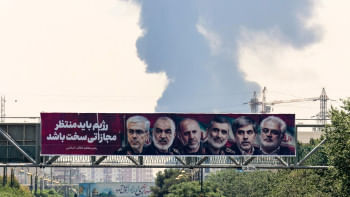We need a bank commission that can drive radical reforms

We welcome the interim government's decision to form a banking commission to implement sustainable reforms in the sector. The formation of such a body has been a longstanding demand from economists, as the sector has suffered massive problems and regulatory failures for years, particularly under the Awami League regime. In 2009, when the party took office, non-performing loans (NPLs) in banks totalled Tk 22,480 crore. By March 2024, NPLs skyrocketed to around Tk 1,82,000 crore. The number would be even higher if not for the accounting frauds committed under the past regime to conceal the true picture.
Over the years, experts have underscored various institutional challenges plaguing the sector, including questionable appointment practices for bank directors, loans being granted and rescheduled ad infinitum, weak internal controls, writing off of loans for dubious reasons, etc. Regulatory weaknesses—such as the lack of independence of the central bank, political influence of habitual loan defaulters, arbitrary issuance of bank licenses, and the quasi-monopolistic power granted to a few banking oligarchs—have allowed these irregularities to occur unabated.
As a result of high NPLs, the fiscal flexibility of banks has also been seriously constrained. This has had numerous spillover effects both on the health of the banks and the overall economy. Given these realities, the country urgently needs a commission to unearth the true extent of the damage done to the sector. Without such an effort to bring transparency to the sector, it will be difficult to determine the necessary remedial solutions for it.
However, in establishing such a commission, its objectives should be clearly defined, as experts have suggested. These may include ensuring full transparency in the commission's operations, identifying the root causes that have led to the current banking problems and future challenges, determining which groups and institutions are responsible for these issues, and providing specific, actionable recommendations for reforms in the short to medium term. Moreover, the interim government should also establish a clear roadmap outlining when and how the commission's suggestions will be implemented.
To ensure that the commission is able to play its desired role, its members should not only be highly competent, experienced, and honest, but they should also engage with different stakeholders to gather their input. Regarding transparency, it is encouraging that the interim government plans to prepare and publish a report on the overall situation of the financial sector and a roadmap for reforms within the first 100 days of its tenure. However, once the commission is established, it should also provide regular updates on its progress to restore confidence in the banking sector. Additionally, to ensure its long-term health, it must be guaranteed that the commission can carry out its work without any external interference in the future.


 For all latest news, follow The Daily Star's Google News channel.
For all latest news, follow The Daily Star's Google News channel. 











Comments